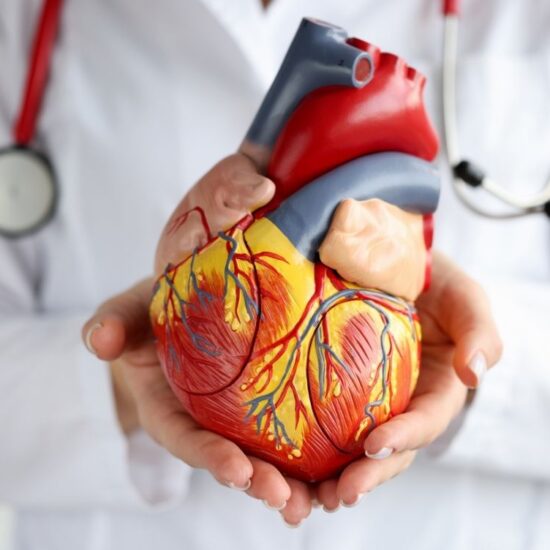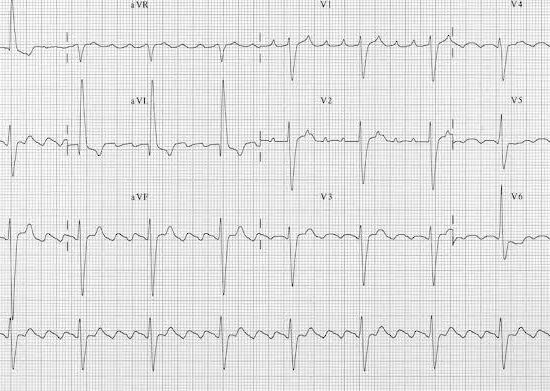The Importance of Early Diagnosis in Heart Diseases
Heart diseases are one of the leading causes of death worldwide. Factors such as modern lifestyle, unhealthy diet, inactivity and stress negatively affect heart health and lead to the prevalence of heart diseases. However, it should not be forgotten that heart diseases can be prevented or treated with early diagnosis. Early diagnosis is vital to stop the progression of heart diseases and prevent fatal outcomes. In this article, we will discuss the importance of early diagnosis in heart diseases, diagnostic methods and recommendations for protecting heart health.
What is Heart Diseases?
Heart diseases encompass a range of health problems that affect the heart muscle, valves, vessels and electrical system. The most common heart diseases include coronary artery disease (narrowing of the heart vessels), heart failure, heart valve disease, and arrhythmias (heart rhythm disturbances). These diseases cause the heart to not pump enough oxygenated blood, making it difficult to meet the energy and nutrients the body needs.
Heart diseases usually progress slowly and may not cause obvious symptoms at first. However, over time, complaints such as chest pain, shortness of breath, fatigue and palpitations may occur. Therefore, diagnosing heart diseases at an early stage can be lifesaving.
Why is Early Diagnosis Important in Heart Diseases?
Early diagnosis of heart diseases plays a critical role in stopping the progression of the disease and improving the quality of life with effective treatment methods. The main reasons why early diagnosis is important are:
Saves Lives
Early diagnosis helps prevent serious complications such as heart attacks, stroke and heart failure. Early diagnosis in individuals at risk of heart disease can reduce the likelihood of a heart attack and ensure preparedness for emergencies.
Makes the Treatment Process Easier
When the disease is diagnosed early, the treatment process becomes easier and more effective. For example, if coronary artery disease is diagnosed early, the progression of the disease can be stopped with lifestyle changes and medication rather than surgery.
Improves Quality of Life
Heart diseases can seriously reduce the quality of life when it progresses. Symptoms such as shortness of breath, fatigue, and chest pain can make daily activities difficult. Early diagnosis and treatment allows individuals to live a normal life by controlling these symptoms.
Reduces Costs
In advanced stages of heart diseases, treatment costs increase due to surgeries and hospitalizations. However, thanks to early diagnosis, the progression of the disease can be prevented and costs can be reduced by applying less invasive treatment methods.
Methods Used in Early Diagnosis of Heart Diseases
Various tests and methods are used for early diagnosis of heart diseases. These tests can reveal early signs of disease by evaluating the heart’s functions, structure and electrical activity. Here are the main methods used to diagnose heart diseases:
Electrocardiogram (EKG)
An ECG is a test that measures the electrical activity of the heart. It provides information about the rhythm and rate of the heart and is used to diagnose heart rhythm disorders such as arrhythmias. It is also used to evaluate the heart function of a person who has had a heart attack.
Echocardiography
Echocardiography is an imaging test known as heart ultrasound. Examines the structure, valves and pumping functions of the heart. Conditions such as heart valve diseases, heart muscle diseases and heart failure can be diagnosed early with this test.
Effort Test
The stress test evaluates how the heart works during physical activity. This test is based on measuring the heart’s response by having the patient exercise on a treadmill. It is an important test used to diagnose conditions such as coronary artery disease.
Angiography
It is a test used to detect narrowings or blockages in the coronary arteries. Angiography allows visualization of the vessels by injecting contrast material into the heart vessels. It is very effective in the early diagnosis of cardiovascular diseases.
Blood Tests
Blood tests that measure cholesterol and triglyceride levels are helpful in assessing heart disease risk. High cholesterol levels can cause blood clots, which increases the risk of heart attack.
Recommendations to Protect Heart Health
The most effective way to protect yourself from heart diseases is to adopt a healthy lifestyle. In addition to regular check-ups, you should pay attention to the following recommendations to protect your heart health:
Balanced diet
To maintain heart health, it is important to adopt a diet rich in vegetables, fruits, whole grains and healthy fats. Avoid fried, processed and excessively fatty foods. Fish, nuts and seeds rich in omega-3 fatty acids are heart-healthy foods.
Regular Exercise
Doing at least 150 minutes of moderate-intensity physical activity a week protects heart health. Activities such as walking, running, swimming and cycling strengthen the heart muscles and increase blood circulation.
Quit Smoking and Alcohol
Smoking narrows the heart vessels and causes arteriosclerosis, increasing the risk of heart disease. Excessive alcohol consumption can also cause high blood pressure and heart rhythm disorders. Staying away from these harmful habits is one of the most effective ways to protect your heart health.
Manage Stress
Chronic stress is an important risk factor that can lead to heart diseases. You can apply techniques such as meditation, yoga and deep breathing exercises to reduce stress.
Regular Doctor Checks
It is important to have regular medical check-ups to prevent heart diseases and diagnose them early. Regularly checking your blood pressure, cholesterol and blood sugar levels allows risk factors to be detected early.
Conclusion
Early diagnosis of heart diseases is vital to change the course of the disease and prevent serious complications. To protect your heart health, it is very important to recognize the symptoms and go to your doctor for regular check-ups. You can reduce your risk of heart disease and improve your quality of life by adopting a healthy lifestyle. Remember, protecting your heart will help you live a healthier life in the future






